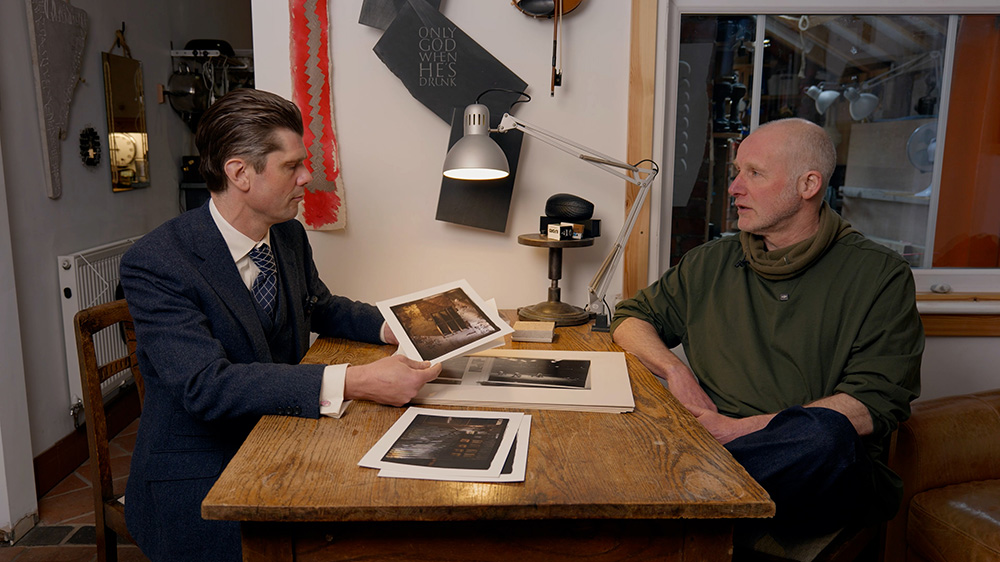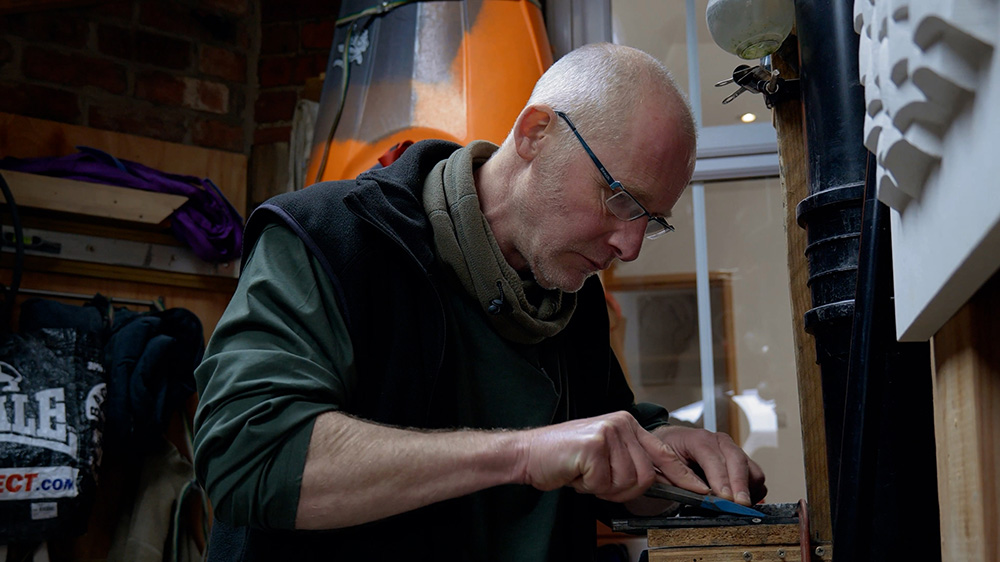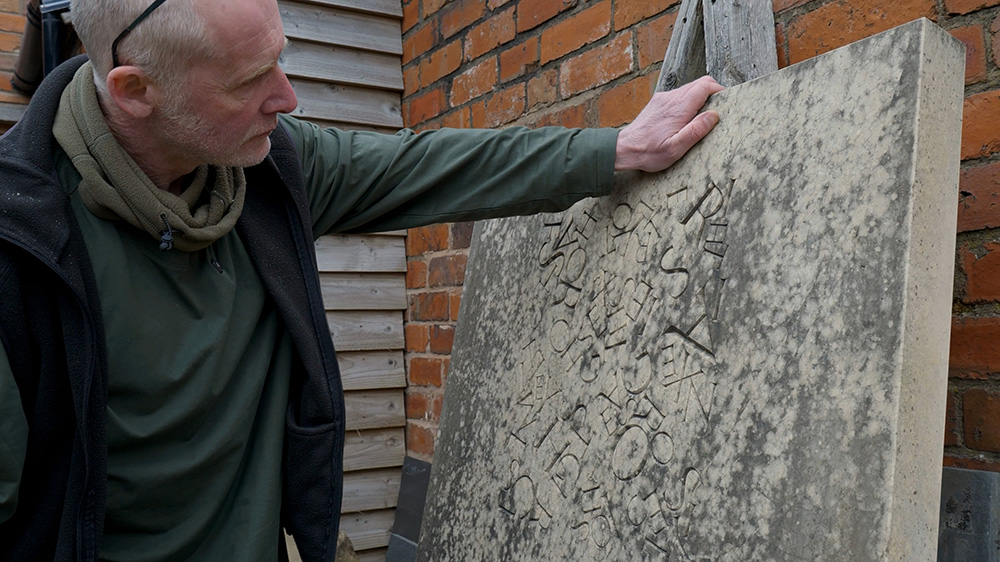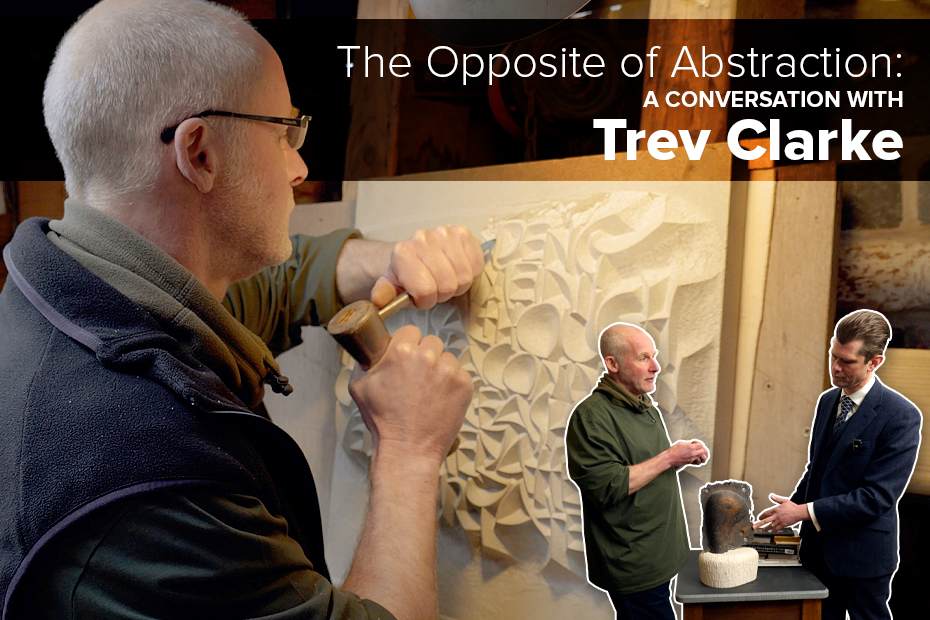Only rarely do I get to sit down with a craftsman like Trev Clarke. For our latest Vieunite Art in Focus interview, it was a real privilege to spend time in his studio to discuss his work as a stone carver, letter cutter, sculptor and photographer. The full conversation, which covers a remarkable amount of ground is available on our YouTube channel.

To understand Clarke’s work, you first have to understand where he’s from. He was raised in Stourbridge, in the heart of the Black Country, and he is clear that the area’s industrial past is in his DNA; it is, as he puts it, “what I know”. He recalled his grandfather’s 53-year career at a local drop forge, the noise of which he described as the “soundtrack of the area”. That factory is a housing estate now, and this act of observing and memorialising a disappearing world informs much of Clarke’s artistic practice.

His own path has been an interesting one. He left school with few qualifications, finding his first job as an optical technician, a role that required a knack for making and repairing things. A desire to change his life led him to a photography course and a subsequent career as a press photographer. This work took him from local assignments to self-initiated projects in post-war Bosnia and Tajikistan. When we met, Clarke spoke candidly about this period, and the dawning realisation that photography has its limits in the face of conflict.
The conversation naturally turned to his move into stone, a medium that seems to perfectly match his deeply ingrained work ethic. He spoke of the honesty of physical labour and the quiet satisfaction of making something with his own hands. We touched on the rigour of his craft, from learning the precise proportions of Trajan Roman letters to explaining to clients why a hand-carved letter, with its subtle response to light and shadow, is a world away from the sand-blasted ‘dumpy hollow’ of many memorials.

For a man who has dedicated himself to the craft of lettering, it was rather telling that one of the most significant pieces we discussed was a completely blank slate. It’s an object that embodies a quote he has adopted from a 1645 Salvator Rosa portrait in the National Portrait Gallery: ‘Be silent unless your speech is better than silence’.
I feel grateful Clarke chose to speak.

Benedict is Vieunite’s Cultural Director and a lecturer at Nottingham Trent University.
